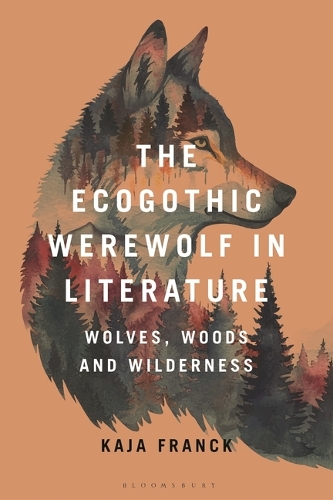
The Ecogothic Werewolf in Literature: Wolves, Woods and Wilderness
(Hardback)
Publishing Details
The Ecogothic Werewolf in Literature: Wolves, Woods and Wilderness
By (Author) Dr Kaja Franck
Bloomsbury Publishing PLC
Bloomsbury Academic
18th September 2025
United Kingdom
Classifications
Professional and Scholarly
Non Fiction
Literary studies: from c 2000
Horror, ghost stories and supernatural fiction
Mythical creatures: Vampires, werewolves and other shapeshifters
Physical Properties
Hardback
216
Width 156mm, Height 234mm
Description
Using an Ecogothic lens, this book offers a new conceptual framework for the werewolf in literature, recasting the lycanthrope as an emblem for societys fear of untamed wilderness. Tracing lycanthropy from a place of liminality to hybridity and to myriad and complex subjectivities, The Ecogothihc Werewolf in Literature undermines the Gothic werewolf to show how the relationship between humans and wolves has impacted the representation of the werewolf in literature. Starting with Dracula and tracing lycanthropic imaginings through natural histories, folk and fairy tales to contemporary iterations in the works of Maggie Stiefvater, Annette Curtis and Anne Rice, Kaja Franck interrogates and stabilises a canon for werewolf studies. From early conservationist Aldo Leopolds awakening regarding the death of wolves, to George Monbiots call to rewild, tensions around humanitys responsibility to the natural world have emerged in lycanthropic literature. A challenge to previous anthropocentric analysis of Gothic horrors stock monster, Franck considers the changing attitude towards wolves alongside the growing environmentalism movement, and reclaims the wolf from the figure of the werewolf.
Author Bio
Kaja Franck is Lecturer in English Literature at the University of Hertfordshire, UK. She is the co-organiser of the 'Open Graves, Open Minds' research project, which is dedicated to supernatural creatures in popular culture.
